Some people love it. Others hate it. But many experts believe that cooking is actually really good for your mind, body and soul. A growing number of therapists are even integrating it into their practices alongside other traditional forms of therapy. Research shows that cooking can help reduce stress, anxiety and depression.
When one teen turned to cooking as a way to calm herself during stressful times, she soon found out that she really enjoyed it. She even placed second in a cooking contest. But the teen kept it all a secret from her domineering mother. And when her mom found out, all hell broke loose. The mother believes she’s wasting her time and should focus on her schoolwork instead. Now the aspiring chef is wondering if her mom is right.
Being a teenager is hard enough without the added pressure of never being able to live up to your mother’s expectations
Image credits: Getty Images / Unsplash (not the actual photo)
This teen taught herself to cook as a way to deal with stress but wasn’t quite prepared for the blowout that followed
Image credits: Martin Baron / Unsplash (not the actual photo)
Image credits: Pablo Merchán Montes / Unsplash (not the actual photo)
Image credits: External-Bonus8887
There are more benefits to cooking than just being able to make your own food
Image credits: Jordan González / Unsplash (not the actual photo)
Cooking therapy, or culinary therapy, has become popular in recent years. A number of experts are using it, either alongside other forms of therapy or as a standalone to treat patients. Dr. Michael Kocet is one of those experts. He took a cooking class back in 2006. “Every single person I told would say ‘oh, cooking is so therapeutic for me’. And the light bulb went off and I thought, in our field, we have art, dance and music therapy, but why hasn’t anyone done cooking therapy or culinary therapy?” Kocet told the BBC.
Kocet defines culinary therapy as “the therapeutic technique that uses arts, cooking, gastronomy, and an individual’s personal, cultural, and familial relationship with food to address emotional and psychological problems faced by individuals, families, and groups.” Kocet adds that culinary therapy allows the therapist and patient to explore an individual’s relationship with food, and look at how food impacts their personal relationships, as well as psychological well-being and functioning.
The expert created a graduate counseling course in culinary therapy at Chicago School after seeing the benefits and a gap in the market. According to the school, he teaches students about mindfulness and food portion control. But he also uses cooking therapy to help individuals and couples, and those dealing with family issues, including grief.
Charlotte Hastings is another firm believer in cooking as a form of therapy. She trained as a psychotherapist and also taught cookery in night-class community kitchens. When she realized she could merge the two, she founded Kitchen Therapy in the U.K. The expert says culinary therapy is less formal and intimidating than traditional “talk therapy.”
“If you’ve got a lot of problems, then for some people, to sit down still and talk, it can actually exacerbate those issues and make you feel worse,” she said, adding that her sessions will often begin with a chat, and end in the kitchen. Talk therapy helps her find out about the patient and cooking helps her dig deeper.
“Because we’re not eyeballing each other, and we’re achieving something and it’s fun, we can be on the same level, there’s a real equality that happens,” said the therapist. “I’ll have the recipe and have the ingredients, but I can enable that person to do something for themselves – so there’s elements of ‘self-therapy’. It provides a safe space.”
Kocet says that you don’t need to be good in the kitchen to benefit from cooking therapy. “Whether you’re a Licensed Mental Health Counselor like me, someone who just lost a family member, a psychologist, or someone who lives in a food desert, every person on this planet has some kind of relationship with food,” said Kocet, adding that culinary therapy can impact our mood, psychological health, and physical health.
Netizens rallied behind the teen and encouraged her to continue cooking
Poll Question
Thanks! Check out the results:
Far out, I hope OP is able to escape her toxic relations. Not everyone is built for academic standards. Found something she loves, is doing well and they just can't stand to see success.
I'm currently doing a second master. Already have a PhD. But if I wasn't disabled, oh man, I would love to be a handyman. F**k all that noise, just do what you love.
Load More Replies...Cooking isn't a career? I hope mom is cooking all her food from scratch right down to milling her own flour because otherwise she is contradicting herself every day.
Bet mom eats in high end restaurants. She cant even say its harder to get into because I am sure there are more chefs than neurosurgens.
Load More Replies...Far out, I hope OP is able to escape her toxic relations. Not everyone is built for academic standards. Found something she loves, is doing well and they just can't stand to see success.
I'm currently doing a second master. Already have a PhD. But if I wasn't disabled, oh man, I would love to be a handyman. F**k all that noise, just do what you love.
Load More Replies...Cooking isn't a career? I hope mom is cooking all her food from scratch right down to milling her own flour because otherwise she is contradicting herself every day.
Bet mom eats in high end restaurants. She cant even say its harder to get into because I am sure there are more chefs than neurosurgens.
Load More Replies...
 Dark Mode
Dark Mode 

 No fees, cancel anytime
No fees, cancel anytime 


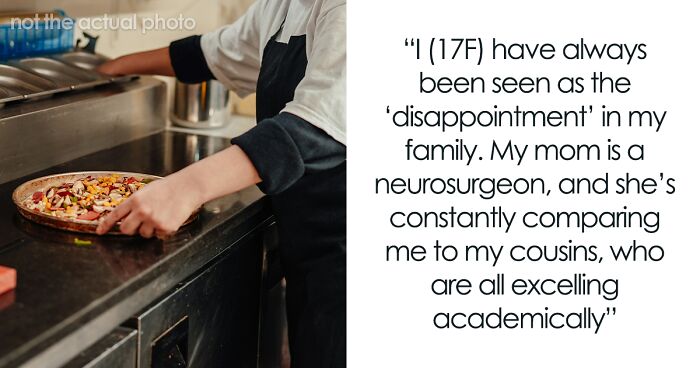




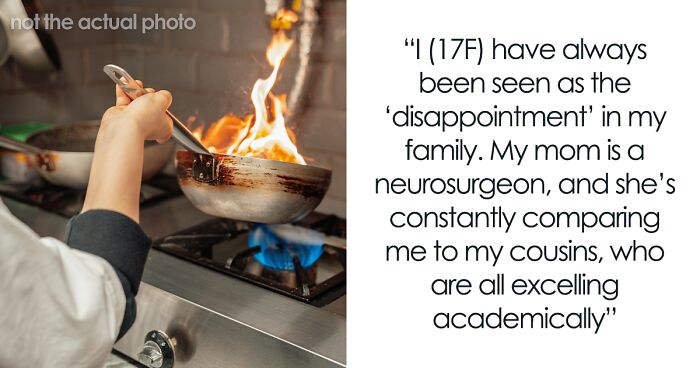



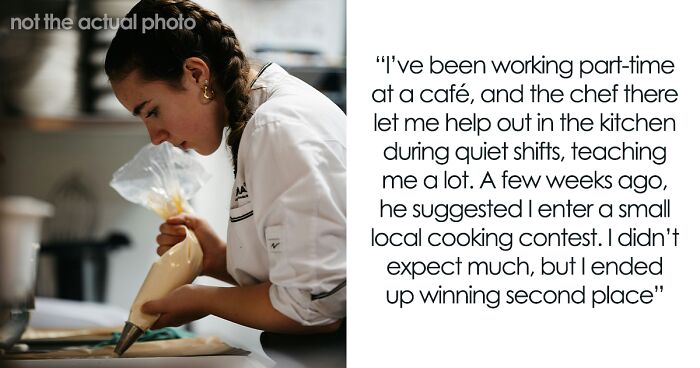

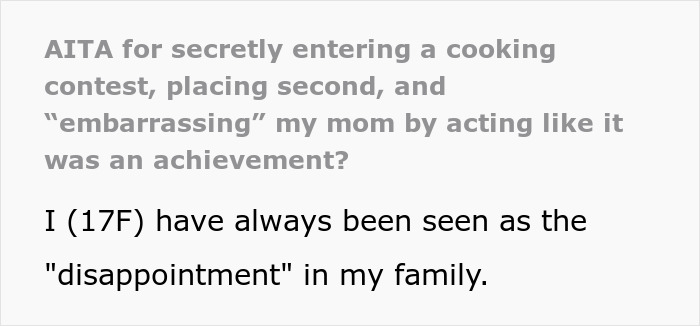
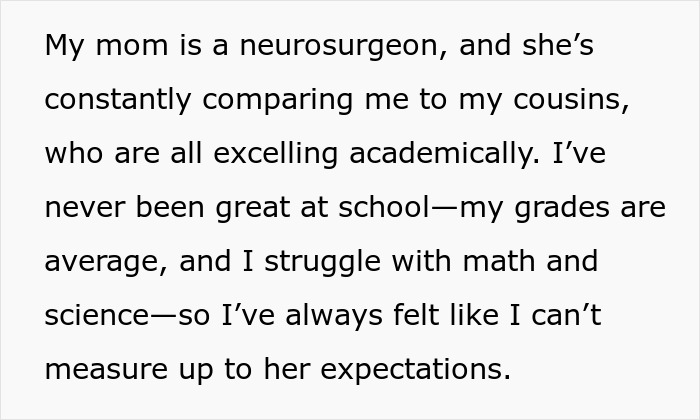
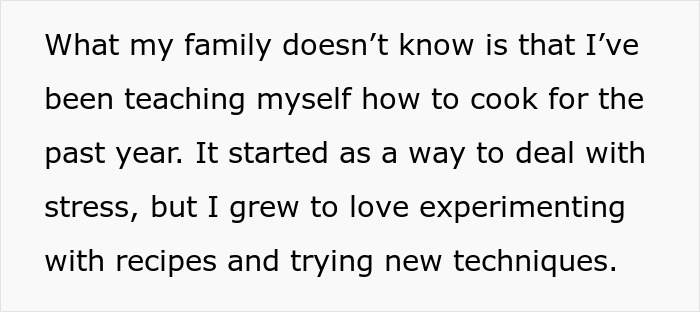

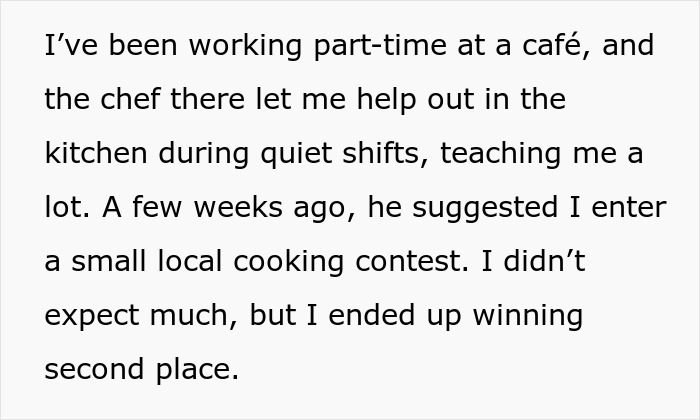
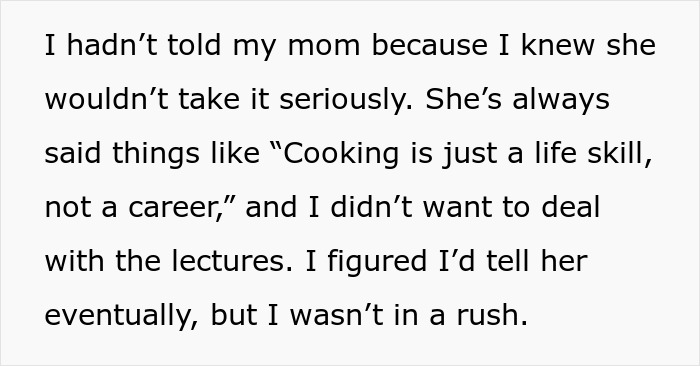


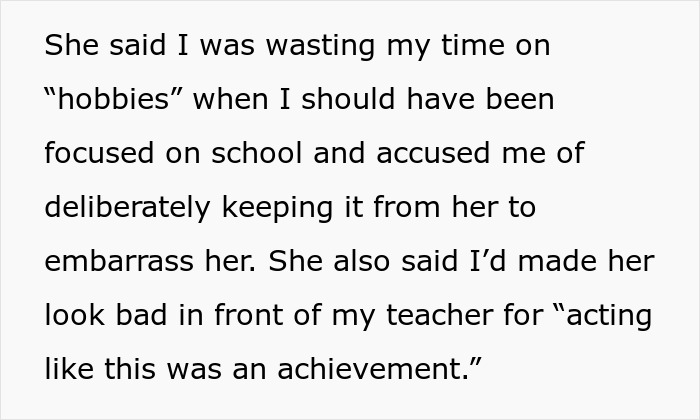

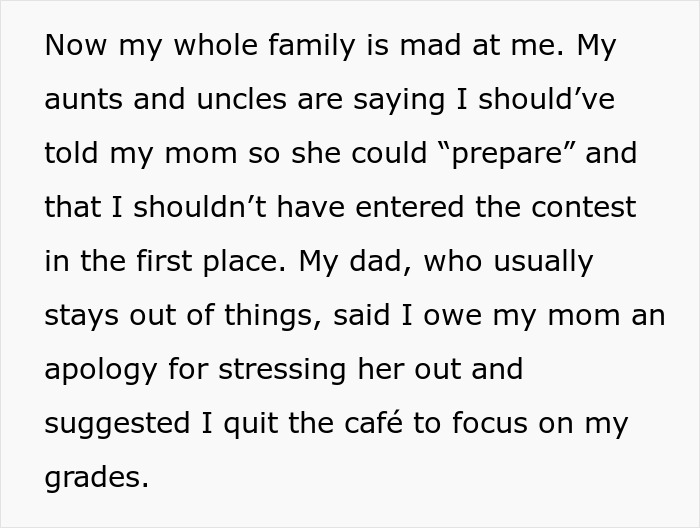
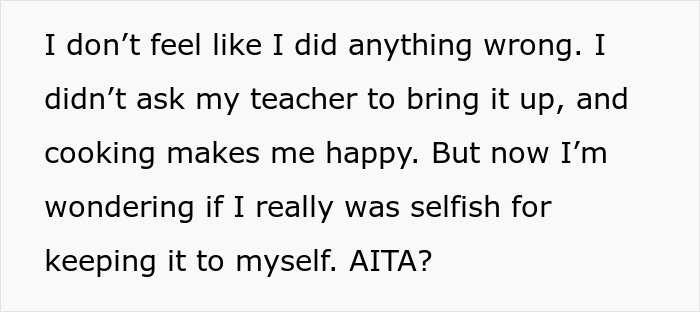

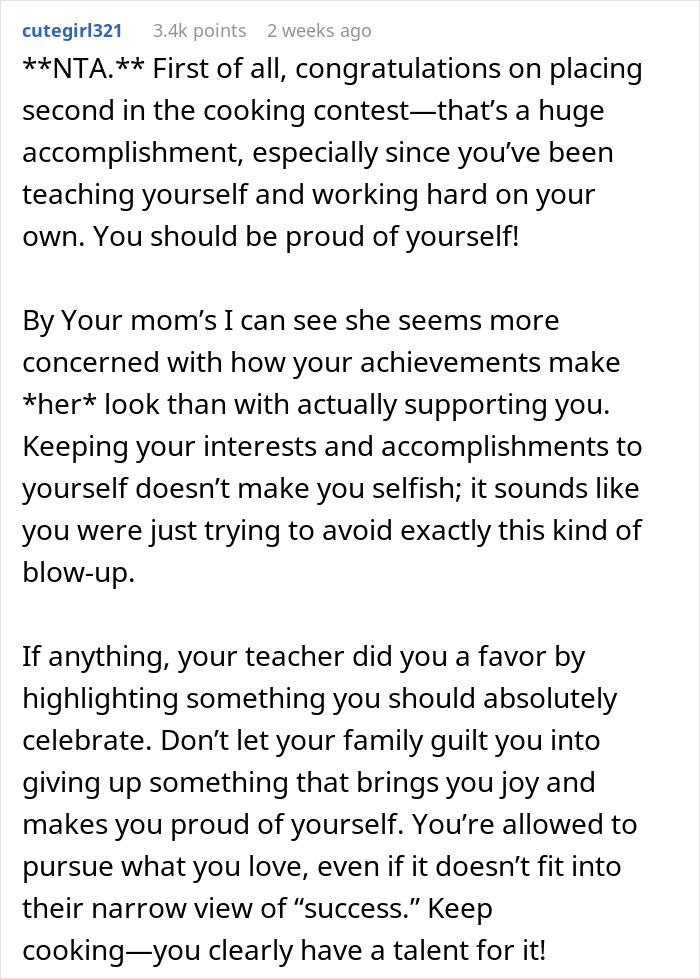
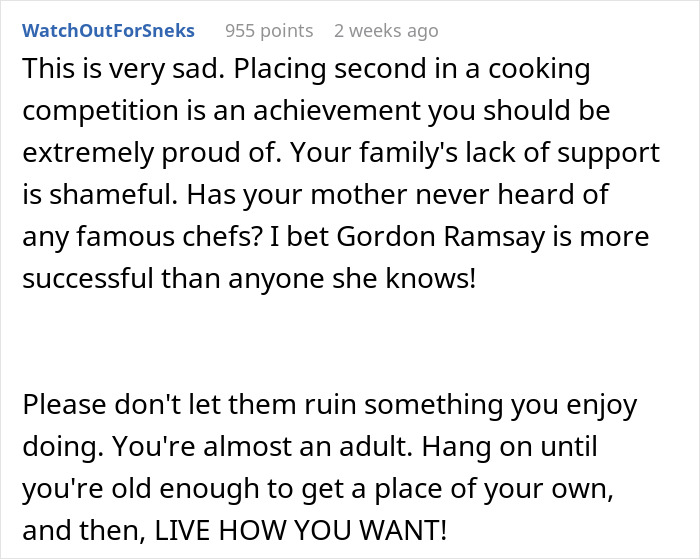
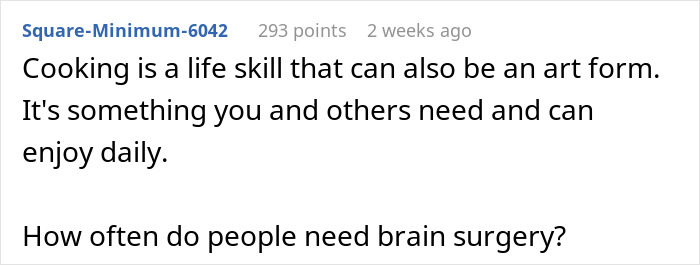
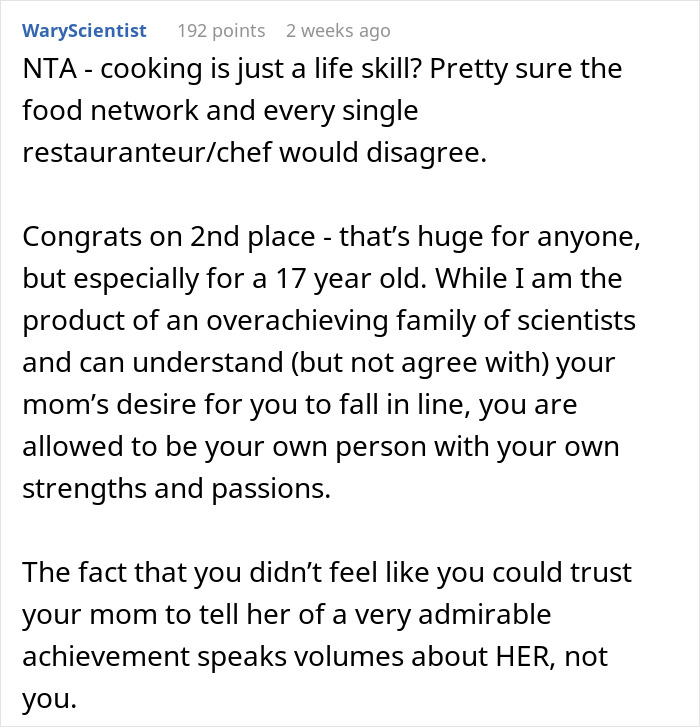
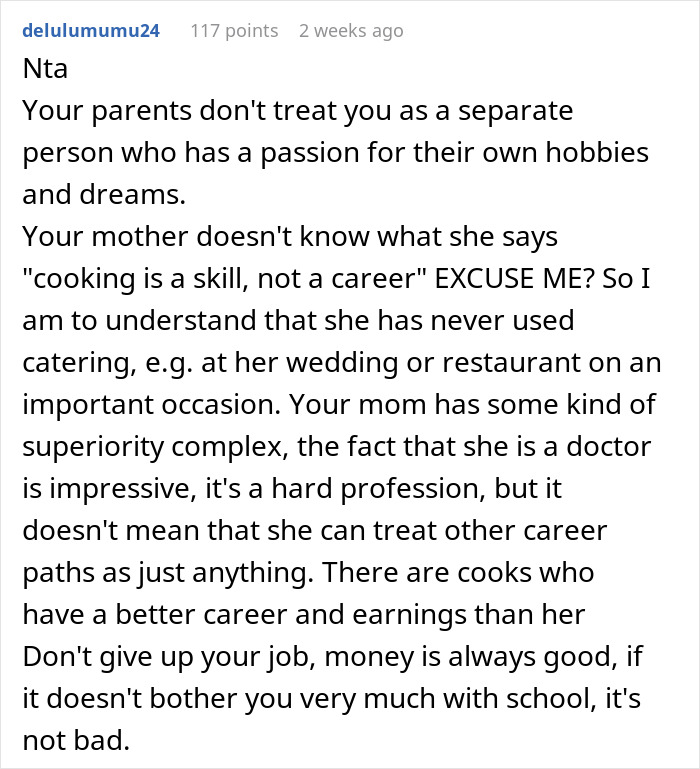

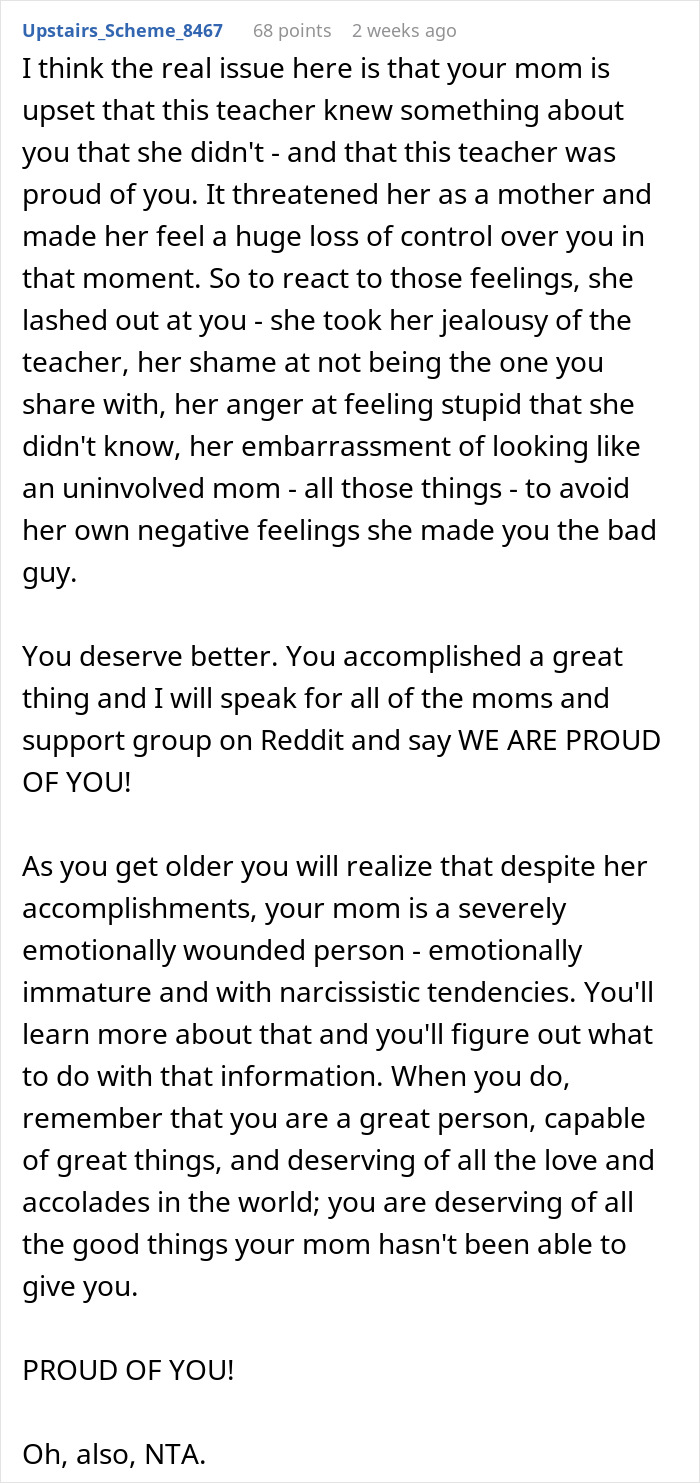
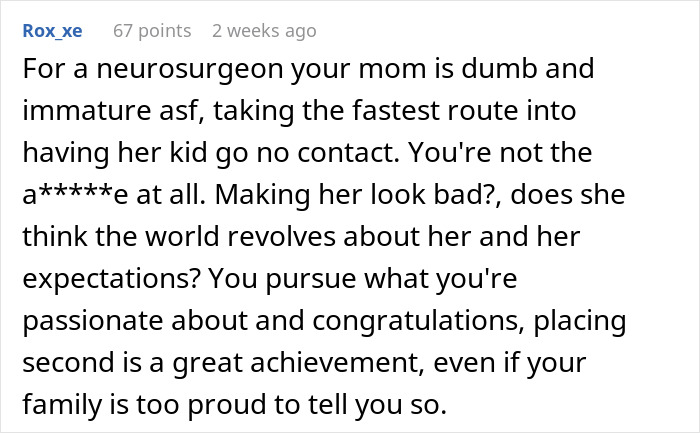





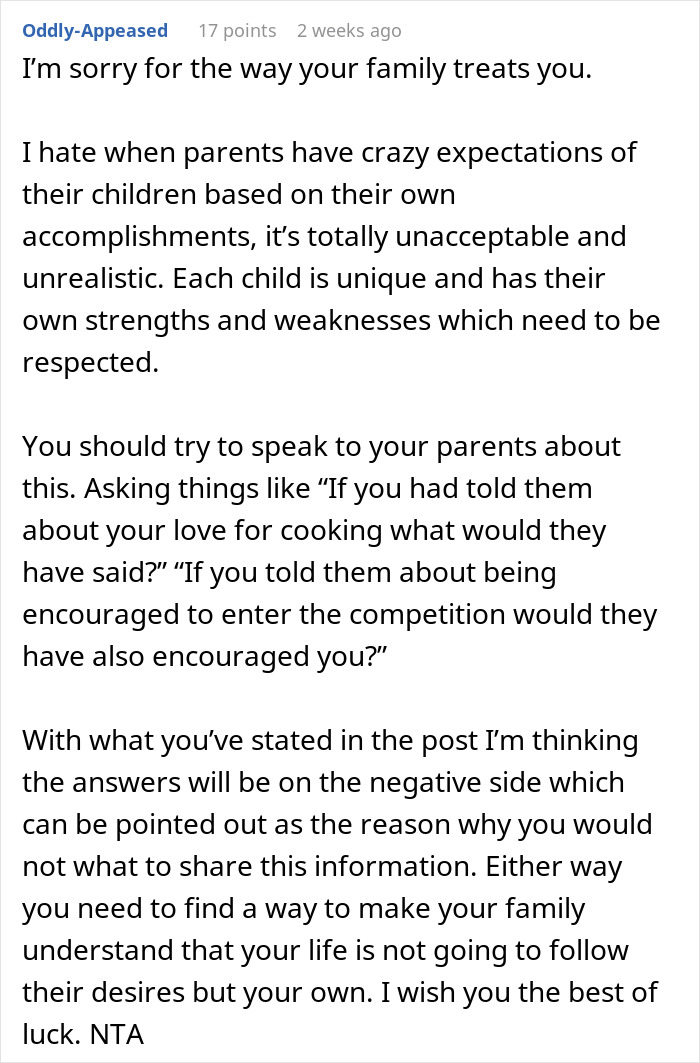
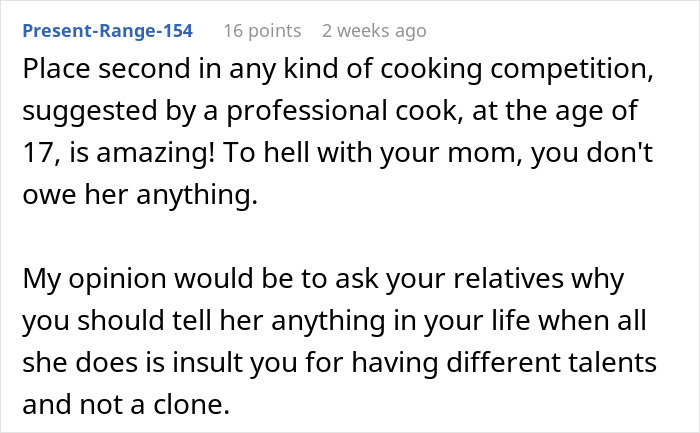
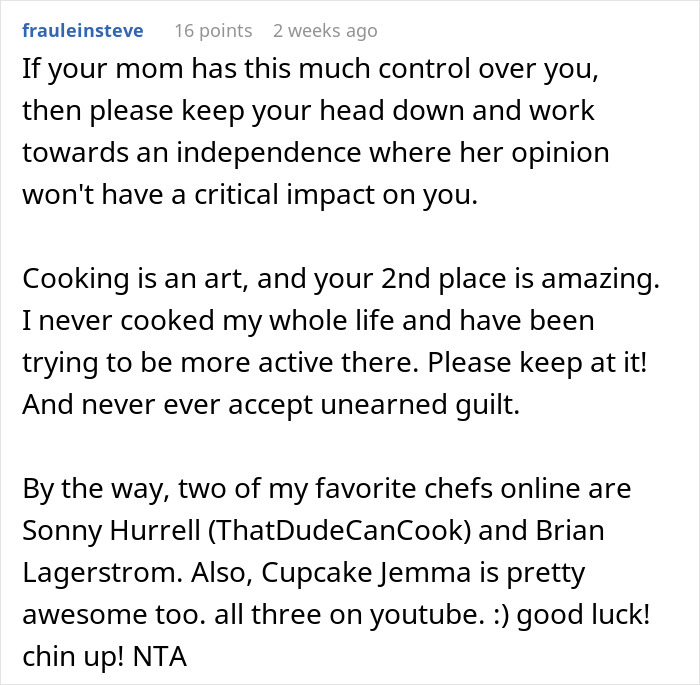
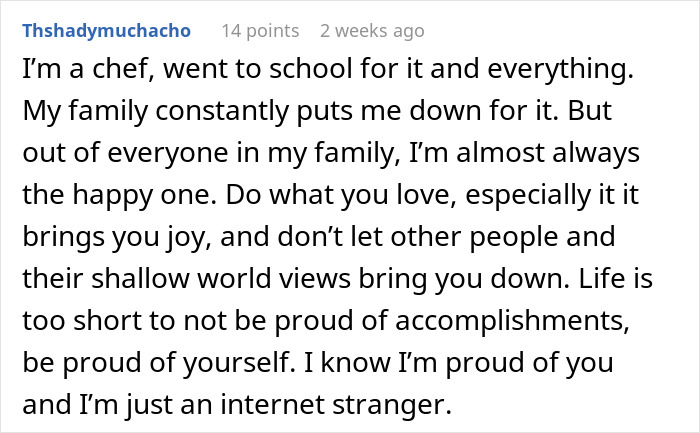

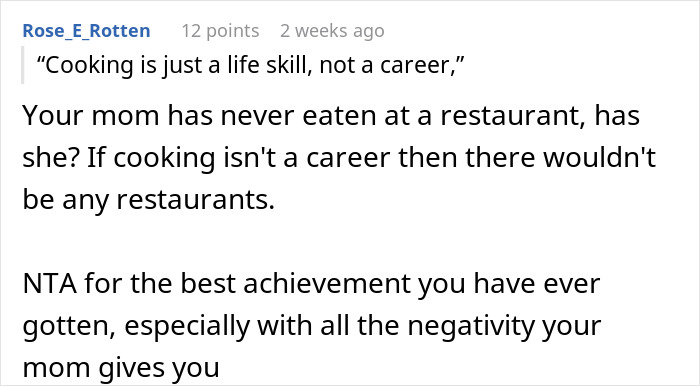

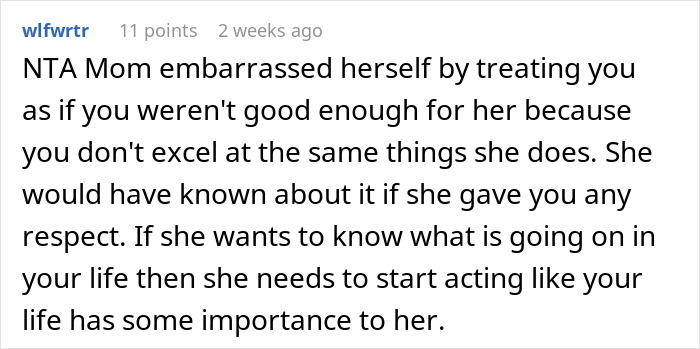
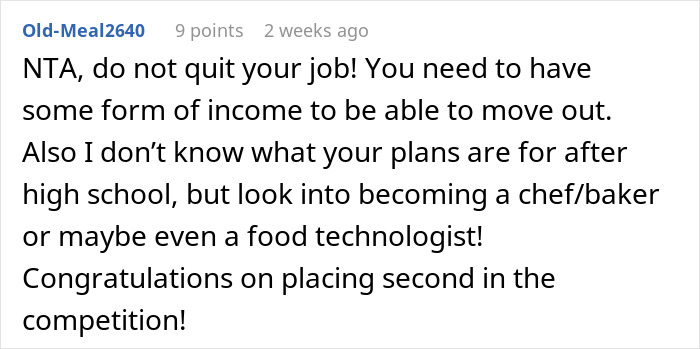
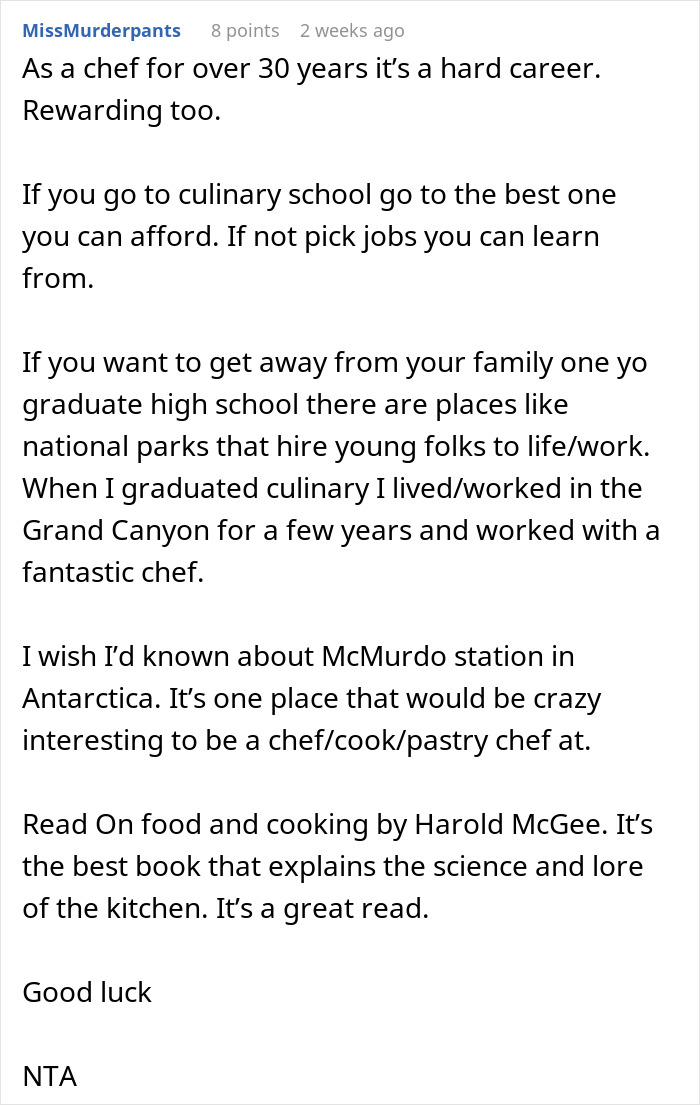

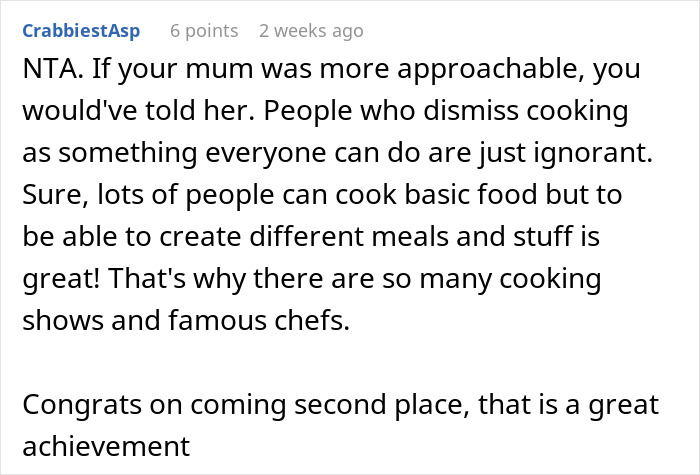
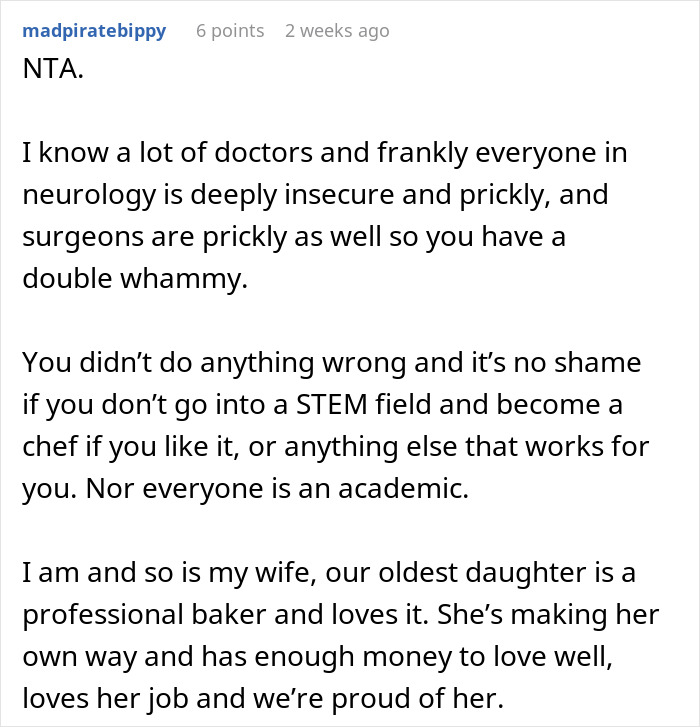








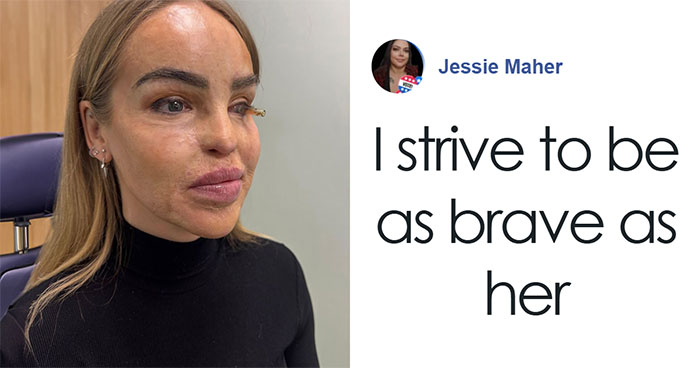

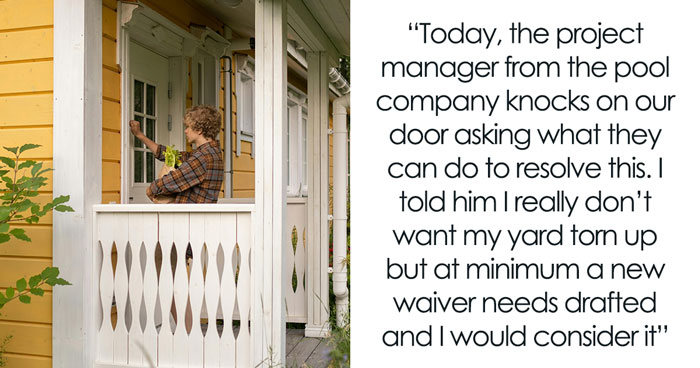
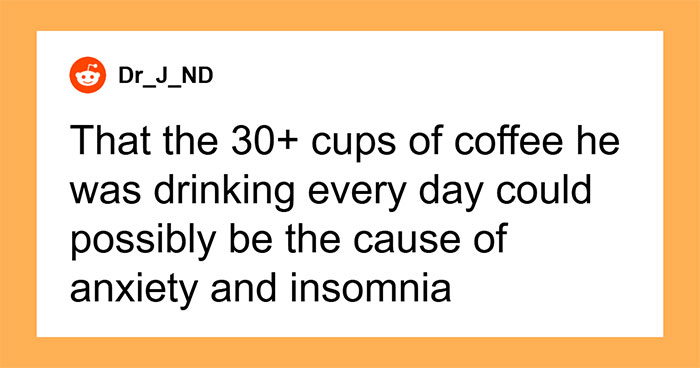
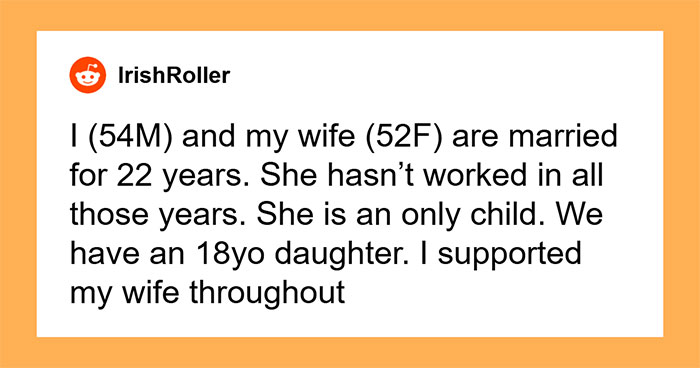



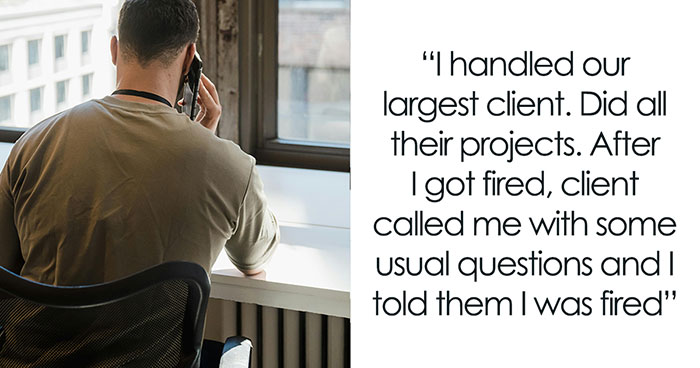





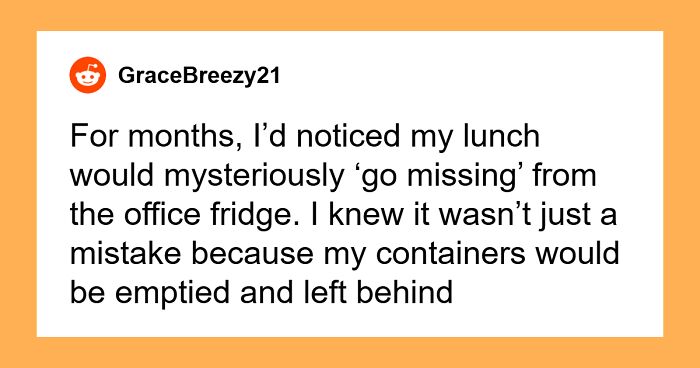
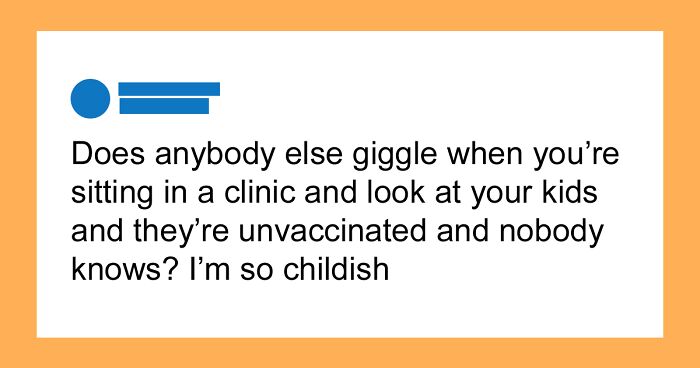

41
28